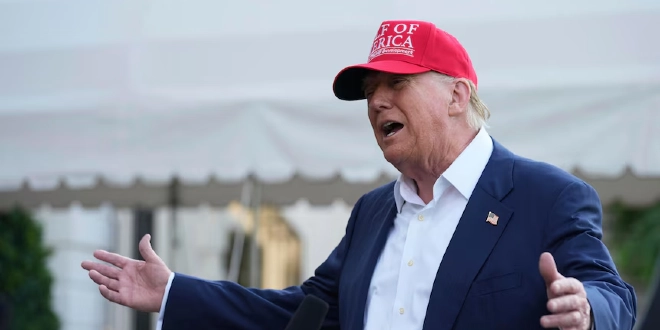The United States House of Representatives passed a major Republican-sponsored spending package that significantly expands former President Donald Trump’s fiscal agenda. The bill, which secured approval after an extended session, marks a pivotal legislative victory for the Trump administration during his second term.
At the core of the legislation is a $4.5 trillion extension of tax reductions first enacted during Trump’s initial term in office. The package ensures that these cuts—originally set to expire—will remain in place, benefiting individuals and corporations alike. Republican lawmakers argued that the extension would support continued economic growth and promote business investment across various sectors.
However, the bill also entails steep financial implications. According to projections, the legislation will add over $3 trillion to the national debt in the coming years. Despite these concerns, the measure passed the House strictly along party lines, with no Democratic support. Critics highlighted the long-term fiscal burden and warned that the move could exacerbate existing deficits.
Major Reductions in Social Spending
The package includes sweeping reductions to federal social programs. Funding for key welfare initiatives such as food assistance, housing subsidies, and Medicaid will be scaled back under the approved plan. Supporters of the bill maintain that the cuts are part of a broader effort to streamline government spending and eliminate what they describe as unnecessary or redundant programs.
Opponents, meanwhile, expressed alarm over the scale and scope of the proposed reductions, warning that vulnerable populations could face serious challenges as a result. Several Democrats voiced concerns that the budget reallocation prioritizes tax relief for higher-income individuals and corporations at the expense of low- and middle-income households.
Following its passage in the House, the bill now moves to the Senate, where it is expected to face more scrutiny. While Republicans maintain a narrow majority, some moderate members have signaled unease about the size of the projected deficit increase. Senate deliberations are likely to focus on specific provisions related to welfare cuts and debt management strategies.


